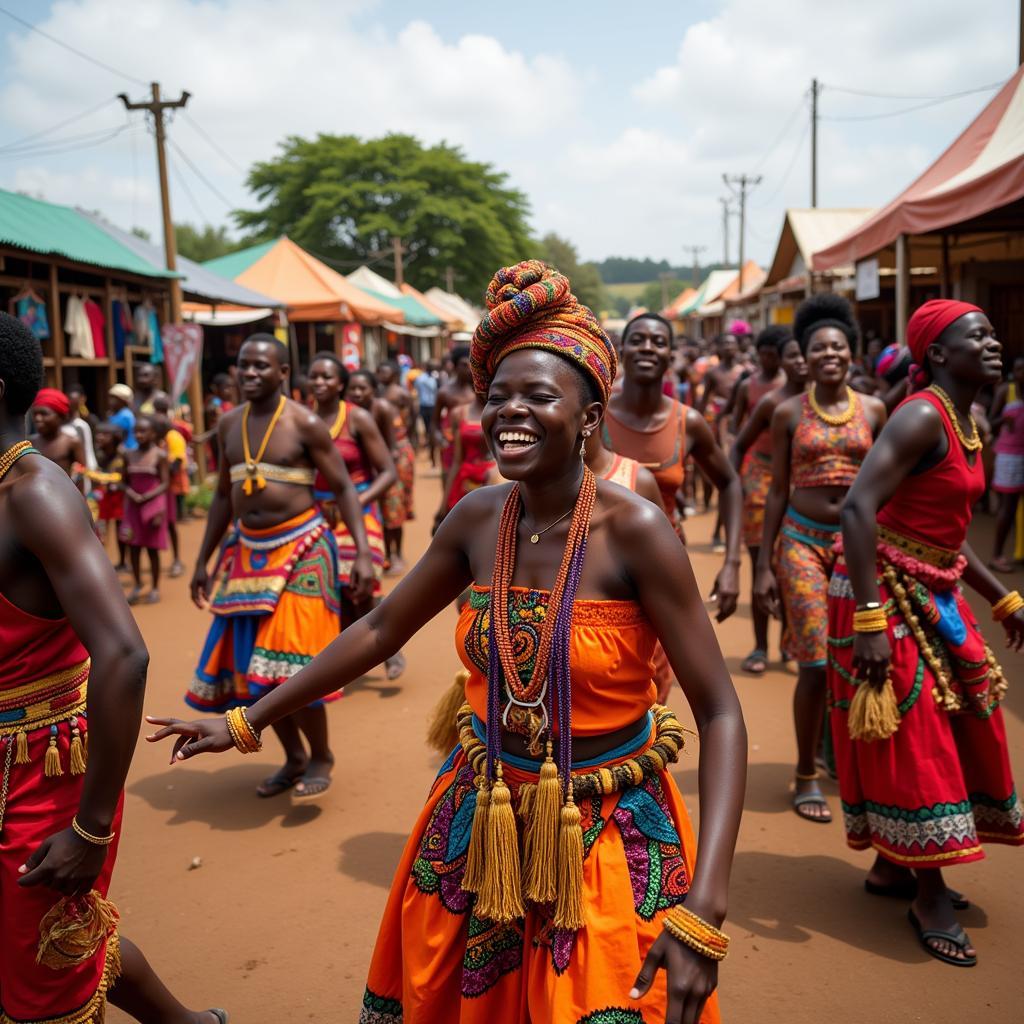Exploring the World of African Cartoon Caricature
African cartoon caricature offers a unique lens through which to explore the continent’s rich cultural tapestry. From political satire to social commentary, these artistic expressions reflect the diverse experiences, challenges, and triumphs of African people. This exploration delves into the vibrant world of African cartoon caricature, examining its historical context, prominent artists, and evolving role in contemporary society.
A Historical Perspective on African Cartoon Caricature
African cartoon caricature has a long and fascinating history, deeply intertwined with the continent’s political and social landscape. Early forms of caricature can be traced back to traditional art forms, such as masks and sculptures, which often exaggerated features to convey specific meanings or represent societal figures. During the colonial era, caricature emerged as a powerful tool for resistance, allowing African artists to challenge oppressive regimes and express their aspirations for independence.
The Rise of Political Satire in African Cartoons
Post-independence, African cartoon caricature continued to flourish, evolving into a vibrant form of political satire. Artists like Gado (Tanzania), Zapiro (South Africa), and Pa Modou Cham (The Gambia) have used their pens to critique corruption, challenge authoritarianism, and hold power to account. Their work has often faced censorship and persecution, highlighting the risks associated with speaking truth to power.
Beyond Politics: Social Commentary and Cultural Identity
While political satire remains a prominent theme, African cartoon caricature also encompasses a broader range of social and cultural issues. Artists explore themes of gender equality, education, healthcare, and environmental challenges, offering insightful commentary on everyday life. They also celebrate African traditions, languages, and cultural identity, showcasing the continent’s diverse heritage.
The Impact of Digital Media on African Cartoon Caricature
The advent of digital media has revolutionized the dissemination and consumption of African cartoon caricature. Online platforms and social media have provided artists with new avenues to reach wider audiences, bypassing traditional media gatekeepers. This has also fostered greater interaction and dialogue between artists and their audiences, further amplifying the impact of their work.
The Future of African Cartoon Caricature
African cartoon caricature continues to evolve, adapting to the changing social, political, and technological landscape. New generations of artists are emerging, bringing fresh perspectives and innovative approaches to the art form. With the increasing accessibility of digital tools and platforms, the future of African cartoon caricature looks bright, promising continued growth and influence.
Recognizing the Power of the Pen
African cartoon caricature is more than just entertainment; it is a powerful form of expression that reflects the complexities of African life. It serves as a mirror to society, a platform for dialogue, and a catalyst for change. By understanding and appreciating the nuances of this art form, we gain valuable insights into the continent’s past, present, and future.
In conclusion, African cartoon caricature holds a significant place in the continent’s cultural landscape. From its historical roots in traditional art to its contemporary presence in digital media, it offers a unique and powerful perspective on African life. By exploring the diverse themes and styles within this art form, we gain a deeper understanding of the challenges, triumphs, and aspirations of African people.
FAQ
- What are some famous African cartoonists? Some notable names include Gado, Zapiro, and Pa Modou Cham.
- How has digital media impacted African cartoon caricature? It has expanded reach, facilitated interaction, and bypassed censorship.
- What role does political satire play in African cartoons? It serves as a tool for holding power accountable and challenging injustices.
- How can I find more African cartoon caricature online? Social media platforms and online publications dedicated to African art are great resources.
- What are some common themes explored in African cartoon caricature? Themes include politics, social issues, cultural identity, and everyday life.
- Why is African cartoon caricature important? It offers a unique and powerful perspective on African Life, fostering dialogue and driving change.
- How does African cartoon caricature reflect the continent’s history? It documents historical events, social struggles, and political transitions.
Other questions you might be interested in:
- What are the different styles of African cartoon caricature?
- How can I support African cartoonists?
- What are the challenges faced by African cartoonists?
If you need further assistance, please contact us: Phone: +255768904061, Email: kaka.mag@gmail.com or visit us at Mbarali DC Mawindi, Kangaga, Tanzania. We have a 24/7 customer support team.

